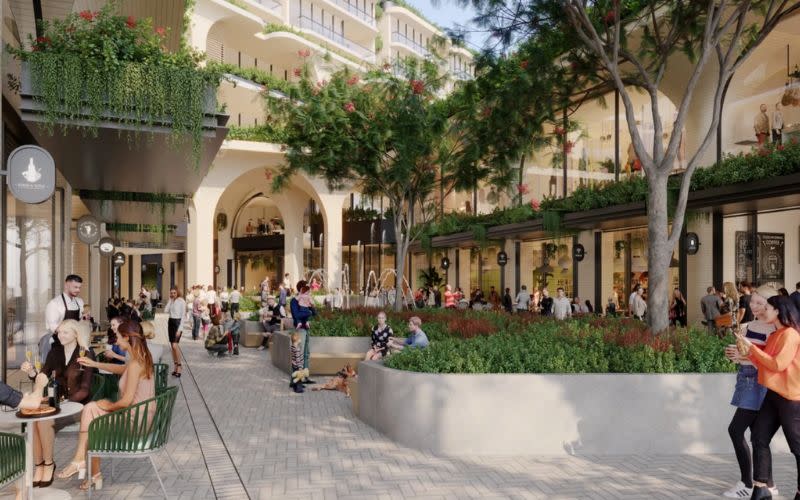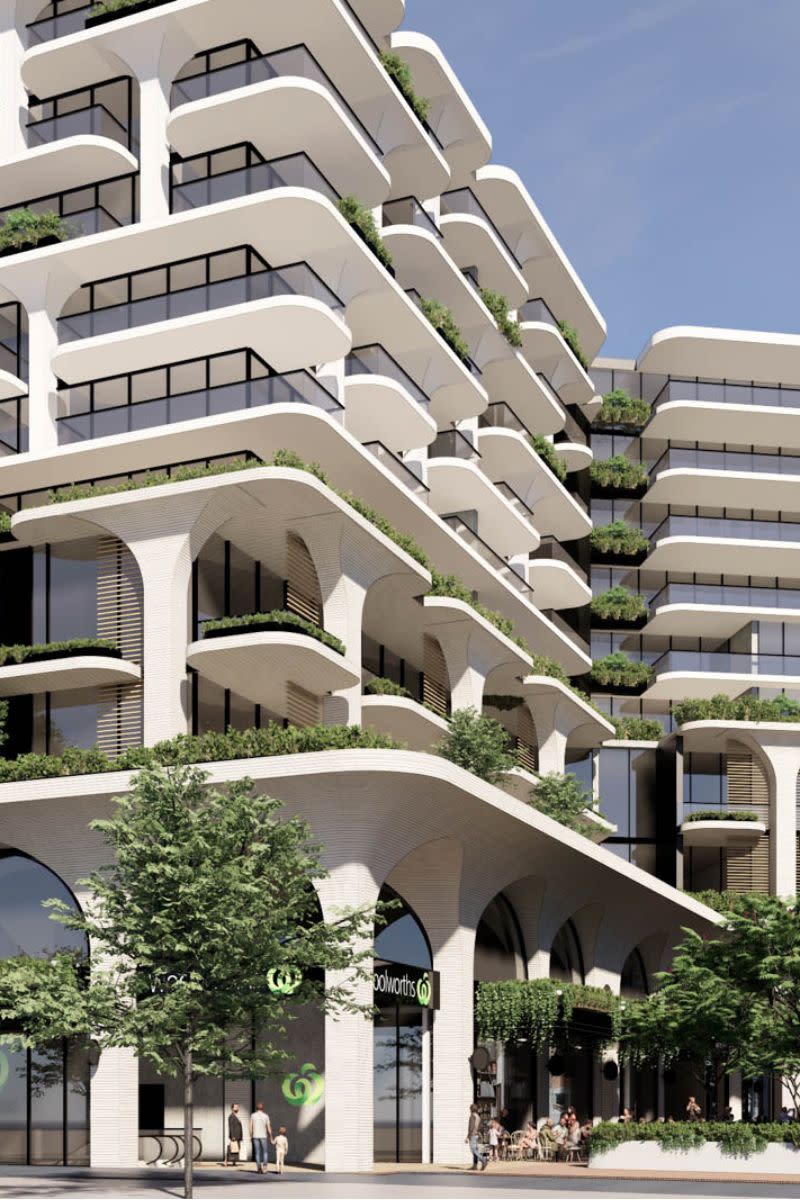
Fabcot, the development arm of supermarket giant Woolworths, has won gateway approval for eight storeys of homes and offices as well as a basement supermarket on Sydney’s lower north shore.
About four years after Fabcot first mooted a major upgrade to an existing Woolies supermarket at Neutral Bay, the Sydney North Regional Planning Panel has agreed the planning proposal shows strategic merit.
Although the planning panel’s opinion was unanimous, four of the five members have insisted the proposal can only be submitted for gateway determination once changes are made to current plans.
The panel wants a reduction in maximum building height to no more than 26m (six storeys) and part 31m (eight storeys). Further, non-residential floor-space ratios must be kept to a minimum of 1.8:1.
The panel also recommended before the proposal goes on public exhibition, the Site-Specific Development Control Plan be amended to remove a two-storey retail podium, reduce floor-to-floor height, increase some setbacks, and lose an additional 88 parking spaces to bring it into line with North Sydney Council’s carparking controls.
North Sydney has not supported Fabcot’s proposal.
The irregularly shaped development site is made up of three lots with a total 4207sq m at 1-7 Rangers Road and 50 Yeo Street, Neutral Bay, about 5km from the centre of Sydney.
It now houses a single-storey Woolworths supermarket with an adjoining liquor store.
Under the latest plans Fabcot intends a full-line Woolworths supermarket across about 3290sq in a subterranean level, ground-floor retail of about 1470sq m as well as commercial space of 2420 square metres.

Eight one-bedroom, 15 two-bedroom and 39 three-bedroom apartments are planned for upper floors and parking for as many as 372 vehicles will go in the building’s basement.
In a report before the Sydney North Regional Planning Panel, town planners Ethos Urban said the proposal would also deliver a new public plaza and site link of about 1100sq m, which would “will help activate the site and provide a new civic heart and focal point for Neutral Bay town centre.”
Ethos Urban said it had prepared a Voluntary Planning Agreement that would commit $6.61 million to the publicly accessible square.
The town planners said Fabcot had first contacted North Sydney early in 2020, as part of the process of preparing the council’s Military Road Corridor Planning Strategy (MRCPS) and so-called Future Directions Report.
Meetings between Fabcot and the council regarding the site-specific planning proposal took place through 2020 and 2021.
In April 2021 the then-council endorsed the MRCPS and the Future Directions Report, and on the back of that, Ethos Urban wrote, Fabcot intended to formally submit the planning proposal to North Sydney in February the following year.
However, a newly elected council voted to rescind the previous administration’s endorsement of the MRCPS and the Future Directions Report for Neutral Bay town centre.
“As a result of this resolution, discussions with the council officers were unable to be further advance and Fabcot elected to finalise the planning proposal package on the back of discussions and advice received up to that point,” Ethos Urban said.

North Sydney objected, saying the proposal would “undermine the ability to achieve the objectives and actions of high-level strategic planning policies relating to the site”.
At the end of October 2022, Fabcot lodged a rezoning request.
Woolworths is understood to have at least three apartment projects planned in Sydney—at Waterloo, Rose Bay and Neutral Bay—as the big supermarket chains look to become developers and shore up in-person grocery shopping.
The countries two biggest chains—Coles and Woolworths—have always been reluctant to discuss their development strategies, but in August last year a spokesperson for Woolies told The Urban Developer cities and urban areas were increasingly densifying.
“It’s important new developments speak to these trends and deliver sustainable outcomes that increase liveability for these communities,” the spokesperson said.
“Our mixed-use developments are an example of responding to the changes we are seeing in our cities and the urban lifestyle people are demanding. Our developments mix quality apartment living with key services, supermarket retail and community infrastructure.
“The retail and residential elements together drive a balanced, quality outcome.”
In making its decision the Sydney North Regional Planning Panel said the planning proposal was consistent with applicable strategic planning documents, particularly as they related to the general objectives for housing.
“Delivering housing supply is a priority issue for Sydney for all levels of government,” the panel wrote.
The proposal is expected to be on public exhibition until June 11.